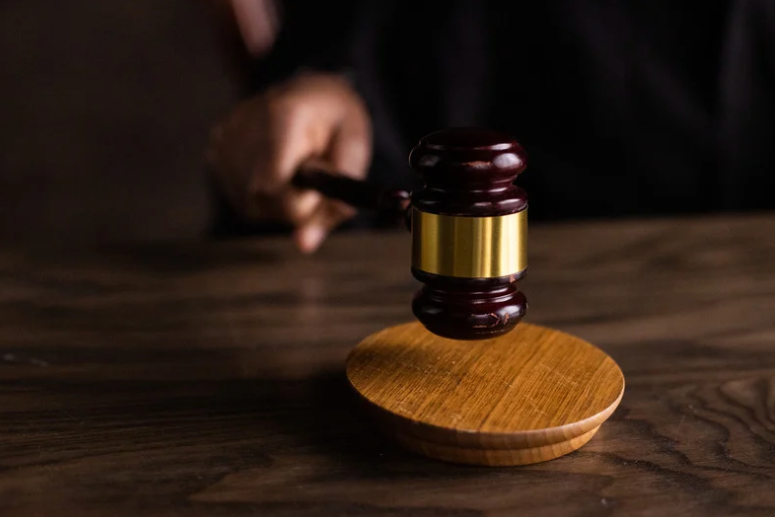Former President Donald Trump Found Guilty: A Historic Conviction
In a significant legal ruling, former President Donald J. Trump was found guilty on all 34 felony counts in a New York hush money trial, marking a historic moment as it is the first time a sitting or former President of the United States has been convicted of a felony. This verdict stems from alleged payments made during the 2016 presidential campaign intended to cover up supposed extramarital affairs, with prosecutors arguing that such actions amounted to falsification of business records and violations of campaign finance laws.
Trial Overview
The trial began in early April and closely examined payments amounting to $130,000 to adult film actress Stormy Daniels and $150,000 to former Playboy model Karen McDougal. Prosecutors argued that these payments, inaccurately listed as legal expenses by the Trump Organization, violated New York state laws aimed at preventing business record falsification. Throughout the trial, the defense team maintained that these payments were personal expenses disconnected from the campaign, asserting that no legal violations occurred. However, after five days of deliberation, the jury presented a unanimous guilty verdict on all counts, underscoring the gravity of the offenses as perceived by the judicial system.
Sentencing and Potential Consequences
Sentencing for Trump is set for June 28, 2024. Each count possesses a potential sentence of up to four years in prison, although many legal experts suggest that due to the non-violent nature of the charges and Trump’s history as a first-time offender, a lengthy prison sentence is improbable. Notably, constitutional law scholar Professor Alan Dershowitz commented, “The conviction itself is unprecedented and carries significant weight. However, the actual sentencing may involve fines, probation, or other non-custodial penalties.” This uncertainty regarding sentencing underscores the broader implications of the conviction as both a legal precedent and a political watershed.
Political Implications
The conviction surfaces as Trump actively campaigns for the 2024 presidential election, where he is recognized as the leading candidate for the Republican nomination. This legal verdict engenders considerable uncertainties within the political landscape, raising questions about its potential repercussions on his candidacy and the overall electoral process. Political analyst Jane Mayer pointed out, “Legally, a felony conviction does not preclude someone from running for or holding the office of president. However, the political and public perception challenges are profound and could influence voter sentiment.” Such dynamics could significantly reshape momentum heading into the election and dictate the political landscape moving forward.
Reactions from Political Figures
The reactions from political figures have been swift and reflect a polarized environment surrounding the verdict. President Joe Biden remarked, “The rule of law is a cornerstone of our democracy. Today’s verdict reaffirms that no one is above the law.” In contrast, House Speaker Kevin McCarthy criticized the verdict as a “travesty of justice,” asserting it as an attempt to undermine a political opponent. Meanwhile, Senate Minority Leader Mitch McConnell acknowledged the legal process’s conclusion but cautioned that the implications for the nation’s political discourse are significant, suggesting a time for reflection amidst the ensuing turbulence.
International Reactions
Internationally, reactions to the conviction have varied widely. Some global leaders expressed concern regarding the stability of U.S. governance, while others viewed the ruling as an affirmation of the integrity of American legal institutions. UK Prime Minister Rishi Sunak stated, “The United States has demonstrated its commitment to the rule of law. We continue to value our strong partnership.” Conversely, Russian President Vladimir Putin offered a more critical perspective, noting, “The internal matters of the United States reveal much about its political system. We observe with interest.” Such divergent international responses underscore the broader implications of the trial’s outcome on global perceptions of American democracy.
Next Steps
In light of the conviction, Trump’s legal team has announced plans to appeal, asserting procedural errors and biases during the trial process. The upcoming appeals could extend over several months, potentially intertwining with the ongoing presidential campaign, further complicating the political dynamics at play. As the nation grapples with the ramifications of this unprecedented verdict, the complexity of legal proceedings intermingling with electoral politics presents an evolving scenario that challenges the resilience of American democratic institutions.
Conclusion
The conviction of former President Donald Trump represents a pivotal moment in American history, intertwining the realms of law and politics in ways that have yet to be fully understood. As the legal repercussions unfold and the political landscape shifts, the implications of this trial will continue to reverberate throughout the nation. This landmark ruling not only challenges existing perceptions of accountability among political figures but also lays the groundwork for new precedents and discussions surrounding democracy and justice in the United States.
FAQs
Can Donald Trump still run for president after this conviction?
Yes, legally, a felony conviction does not prevent an individual from running for or holding the office of president. However, public perception and political ramifications may impact his campaign.
What are the potential consequences of the sentencing?
Sentencing is scheduled for June 28, 2024, and while Trump faces up to four years for each count, experts suggest non-custodial penalties, such as fines or probation, are more likely due to the nature of the offenses and his status as a first-time offender.
What are the next steps for Trump’s legal team?
Trump’s legal team has announced plans to appeal the conviction based on alleged procedural errors and bias experienced during the trial. The appeals process could extend for several months.
How have international leaders reacted to the conviction?
International reactions have been mixed, with some leaders commending the U.S. for upholding the rule of law, while others, such as Russian President Putin, expressed skepticism about American political stability.
What does this mean for the future of American democracy?
This conviction raises important questions about accountability in political leadership and the integrity of democratic institutions in the U.S., potentially influencing future political discourse and voter sentiment.

